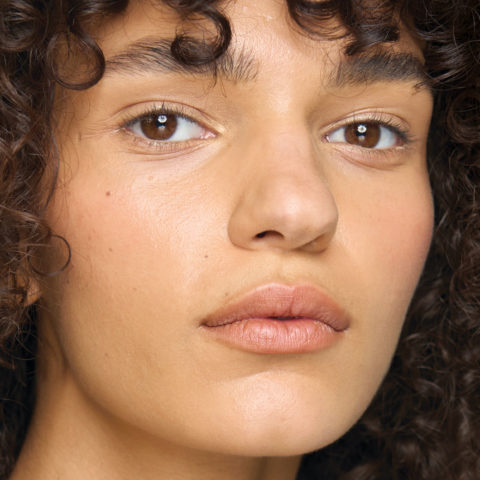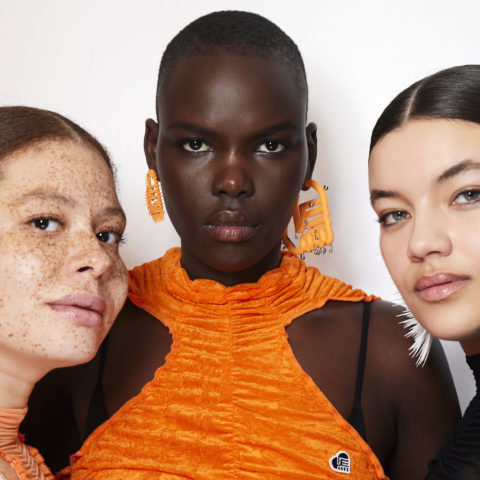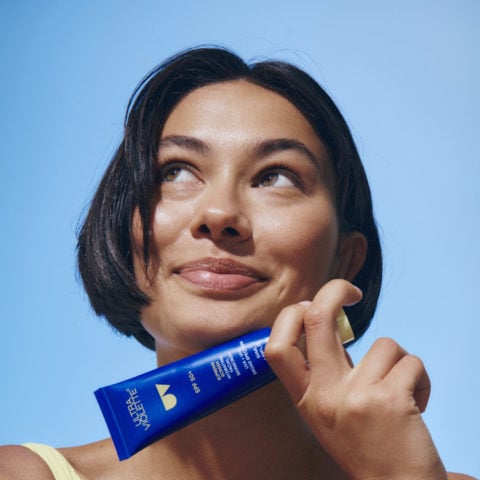The Beauty Supplements That Can Do Wonders For Your Skin, Hair and Nails
There aren’t many things we can say we miss about our teenage years—like having to answer to our parents, texting on flip phones, and being denied entry into a bar with our sisters’ ID. But there’s one thing we never thought we’d miss—our teenage complexion. In what was supposed to be the period of our lives when we battled raging hormones and stereotypical pizza faces, many of us experienced just an occasional blemish on our perfectly plump, wrinkle-free mugs. Sure, a zit in those days may have caused us a significant amount of grief (remember when DJ Tanner channeled Cousin It after discovering her first pimple?), but ten plus years later, we’d kill for just a single skin woe.
For many of us, parallel to our pursuit of happiness is our pursuit of perfect skin. We’ve tried everything—from meds to creams to serums and facials—to illuminate our lackluster complexion, heal blemishes, and lighten under-eye circles. So, what’s next? Looking at the cause of each of our skin concerns so we can cure and prevent them accordingly.
We sought advice from Toronto Naturopath Dr. Erica Nikiforuk to find natural ways to cure our nagging skin conundrums. “The main reason we look to natural health products (aka supplements) is to obtain what we otherwise could not achieve through our diet,” says Dr. Nikiforuk. Even when we do our best to avoid junk food, if we’re stressed, our bodies can have difficulty absorbing the nutrients from the healthy foods we eat. So, natural health products help us provide our bodies with the vitamins and nutrients they need to be as healthy as possible, and look as healthy as possible.
Here, the supplements to add to your diet to target your most troubling beauty concerns and help you achieve the best skin, hair, and nails of your life (take that, teenage you).
To brighten and even out your skin tone
Dr. Nikiforuk recommends incorporating foods that are rich in antioxidants into your diet. Such foods include dark leafy greens, blueberries, blackberries, and even dark chocolate. “Antioxidants help to reduce and repair damage to skin cells—hence they can even out skin tone, minimize scars and wrinkles, and reduce dark spots,” says Dr. Nikiforuk. Also, supplements like “green tea, resveratrol, vitamin C, vitamin E, beta-carotene, and zinc can be used as antioxidants for skin health.” If you’re worried about redness, go with omega 3 essential fats, which, Dr. Nikiforuk says, “work wonders,” as “they help to hydrate dry skin, but also neutralize sebum production in oily skin.”
To prevent breakouts
It helps to understand the cause of your breakouts so you can treat them correctly. If your blemishes are driven by oily skin, Dr. Nikiforuk recommends loading up on vitamin A, found in carrots and strawberries, which can reduce sebum production in skin. If your blemishes are a result of a hormone imbalance—meaning elevated levels of androgen hormones, as found in women with PCOS (Polycystic Ovarian Syndrome)—Dr. Nikiforuk says to try spearmint tea or capsules or a high dose of omega 3 oils. All of these supplements—vitamin A, spearmint, and omega 3—will also help if your blemishes are related to stress, as they can reduce DHEAs—an “androgen hormone produced in the adrenal glands (our stress-response glands)—which can be elevated in times of stress.”
To minimize under-eye circles
“The most common nutritional cause of under-eye circles is iron deficiency,” says Dr. Nikiforuk, “so increasing iron-rich sources in the diet or adding an iron supplement can help.” She advises that taking extra iron is only a good idea if your levels are low, so it’s best to determine this with a blood test before taking any supplements.
To repair skin damage caused by the sun
Incorporate vitamin E (found in almonds and dark leafy greens) into your diet, as it can “help protect sun-induced damage to fibroblasts, which are the cells responsible for producing collagen and elastin,” says Dr. Nikiforuk. Furthermore, vitamins D, C, E, and beta-carotene can “counteract oxidative damage to skin cells and DNA caused by sun exposure.”
To nourish your hair and nails
Dr. Nikiforuk explains that hair and nails are non-essential tissues, meaning that if vitamin levels in the body are low, they will be used first by other “essential” tissues, such as the heart and brain. “A good example of this is with iron,” Dr. Nikiforuk says, “which is used in the red blood cells to transport oxygen throughout the body. When iron levels are low, it will be preferentially used by the red blood cells, and this can result in hair loss, or nails becoming thin and brittle.” For healthy hair growth, Dr. Nikiforuk recommends B vitamins (such as folate and biotin,) vitamin D, and zinc, and for both hair and nail growth, omega 3 oils.
Note: Although natural health products are regarded as safe, they can have side effects, and it’s possible to overdose on supplements. Check with your family or naturopathic doctor before taking any natural health product.








